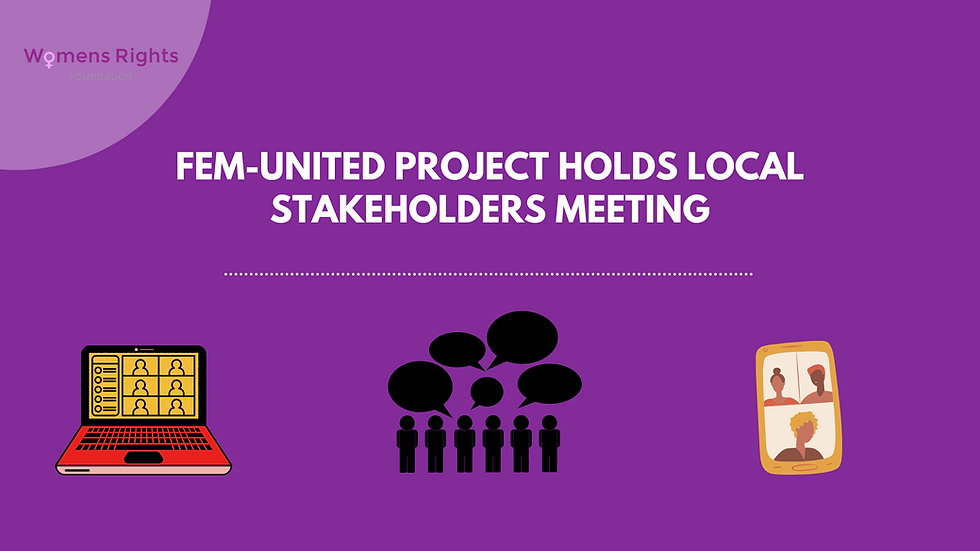
FEM-UnitED is a research project that aims to prevent gender-based violence, by focusing on a community-based response that actively prevents Intimate Partner Violence (IPV) and Domestic Violence (DV) related femicide. The local partners of the project are Women’s Rights Foundation and the Department of Gender and Sexualities, University of Malta. Coordinated by the Mediterranean Institute of Gender Studies (Cyprus), international partners include: the Cyprus University of Technology, the Institute for Empirical Sociological Research at the University of Erlangen-Nuremberg (Bavaria, Germany), the University of Zaragoza (Spain), and the University of Porto (Portugal). The team is also made up of advocacy NGOs and women’s specialist services, including UMAR – União de Mulheres Alternativa e Resposta (Portugal).
FEM-UnitED aims to raise awareness and enact prevention measures on femicide through capacity building (training) for professionals in various fields, informing the public on the gendered element of DV/IPV, creating guidelines addressing the handling of domestic violence, and developing qualitative and quantitative data that directly deals with transnational femicide. In doing so, the FEM-UnitED project can act as a framework for EU countries (and beyond) within the context of dealing with DV/IPV, as well as improve the immediate response to ensure early intervention and therefore prevention of femicide.
This means that the project ultimately aims to strengthen the capacity of police, prosecutors, social workers, health professionals, NGOs, victim support services and the general public on how to prevent femicide.
On the 21st of June, local partners (the University of Malta and Women’s Rights Foundation) met with stakeholders that included attendees from fields such as law, public health and social services, to further discuss the aims, outcomes and activities of the project. The discussion largely focused on how institutions can improve in the handling of DV/IPV cases, as well as how the project can address needs that are specific to Malta’s situation of femicide. The conversation offered various perspectives rooted in the response to DV/IPV, creating a clearer picture that will allow researchers to accurately identify where institutions and policy intersect with the issue of femicide.



Comments